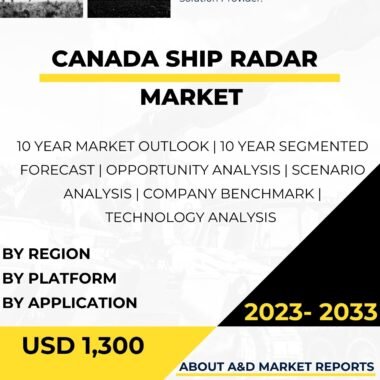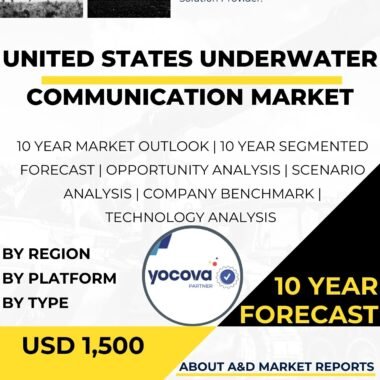Description
The ship radar market in Singapore plays a critical role in the country’s maritime security and safety efforts. As a bustling maritime nation with one of the busiest ports in the world, Singapore relies heavily on ship radar systems to enhance situational awareness, navigate through busy waterways, monitor vessel traffic, and ensure the safety of ships and crew.
Ship radars are vital electronic devices used on vessels to detect and track other ships, obstacles, and weather conditions in the surrounding environment. These radars employ electromagnetic waves to scan the horizon and provide real-time information to navigators, enabling them to make informed decisions and avoid potential hazards.
The ship radar market in Singapore is characterized by a combination of domestic developments and international collaborations. The Maritime and Port Authority of Singapore (MPA) and the Singapore Navy are key stakeholders in utilizing ship radar technology to enhance maritime safety and security. Additionally, Singapore collaborates with global radar manufacturers and research institutions to access cutting-edge technologies and expertise related to ship radar systems.
One of the key drivers for the growth of the ship radar market in Singapore is the country’s strategic location as a major global shipping hub. Singapore’s strategic position in the Malacca Strait and South China Sea makes it a critical chokepoint for international maritime trade. Ship radars play a crucial role in ensuring safe navigation through these busy waterways, preventing collisions, and reducing the risk of maritime accidents.
Moreover, Singapore’s extensive maritime activities and its role as a transshipment hub for goods from around the world demand a high level of maritime security and safety. Ship radars are essential tools for monitoring vessel traffic, identifying potential security threats, and preventing illegal activities, such as smuggling and piracy.
Singapore’s focus on technology and innovation drives the development of advanced ship radar systems tailored to its specific maritime needs. The country actively invests in research and development initiatives to create cutting-edge ship radar technologies that enhance navigation accuracy, optimize signal processing, and improve target detection capabilities.
In addition to maritime safety and security, ship radars also play a critical role in supporting search and rescue operations at sea. By detecting distress signals and providing real-time location information, ship radars aid in the rapid response to maritime emergencies, ensuring a timely and effective rescue effort.
Furthermore, the ship radar market in Singapore is an essential driver of job creation and skills development. The industry offers diverse opportunities for skilled radar engineers, technicians, data analysts, and support staff, contributing to the country’s workforce development and economic growth.
As a responsible member of the international maritime community, Singapore actively participates in regional and international efforts to promote maritime safety and security. The country collaborates with neighboring countries and international organizations to share information, conduct joint exercises, and enhance maritime domain awareness.
Singapore’s ship radar market caters not only to large commercial vessels but also to various maritime assets, including patrol vessels, coast guard ships, and naval vessels. The integration of ship radar systems on these platforms enhances their capabilities for maritime surveillance, reconnaissance, and search and rescue operations.
Additionally, the adoption of ship radar aligns with Singapore’s broader efforts to enhance its maritime defense capabilities. The country’s Navy utilizes ship radar on its warships to detect potential threats and maintain situational awareness during operations, contributing to the country’s overall maritime security posture.
The integration of ship radar systems with other advanced technologies, such as satellite communication and artificial intelligence, further enhances their capabilities and operational efficiency. These technologies enable automated data processing, smart network management, and predictive analysis, optimizing ship radar performance and ensuring efficient resource utilization.
In conclusion, the ship radar market in Singapore is a vital component of the country’s maritime safety, security, and defense efforts. The adoption of ship radar aligns with Singapore’s commitment to leveraging advanced technologies to enhance its maritime capabilities and maintain its position as a global maritime hub.
Singapore’s focus on research and development, combined with collaborations with international partners, ensures that its ship radar industry remains at the forefront of radar technology. The integration of ship radar systems with other advanced technologies enhances their capabilities, contributing to greater navigational safety, maritime domain awareness, and maritime security.
The growth of the ship radar market in Singapore reflects the country’s dedication to ensuring the safety and security of its maritime activities and contributing to regional and global efforts to promote safe and secure seas. As Singapore continues to invest in ship radar technology and infrastructure, it will remain at the forefront of maritime safety and security, supporting its role as a responsible and capable maritime nation.




